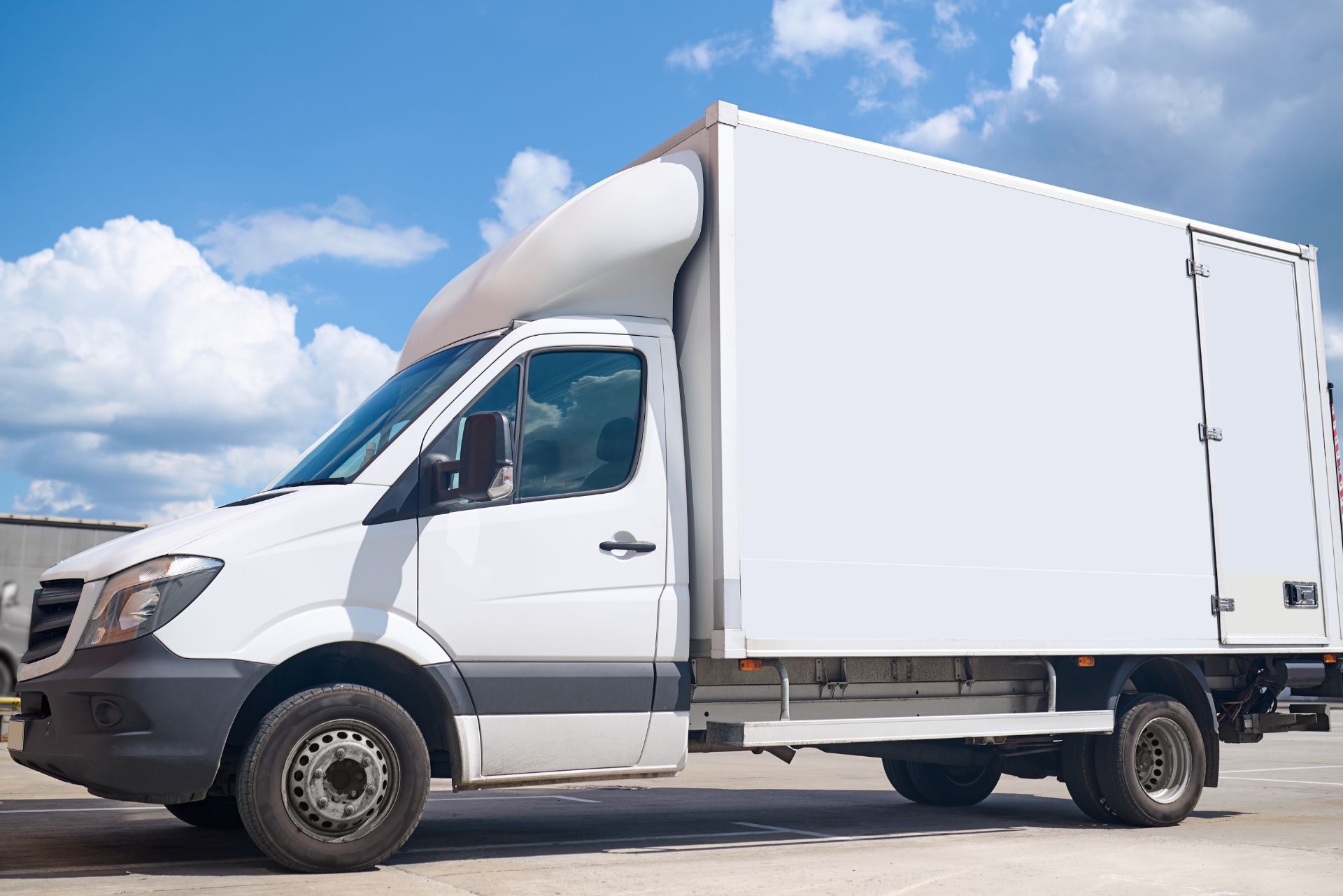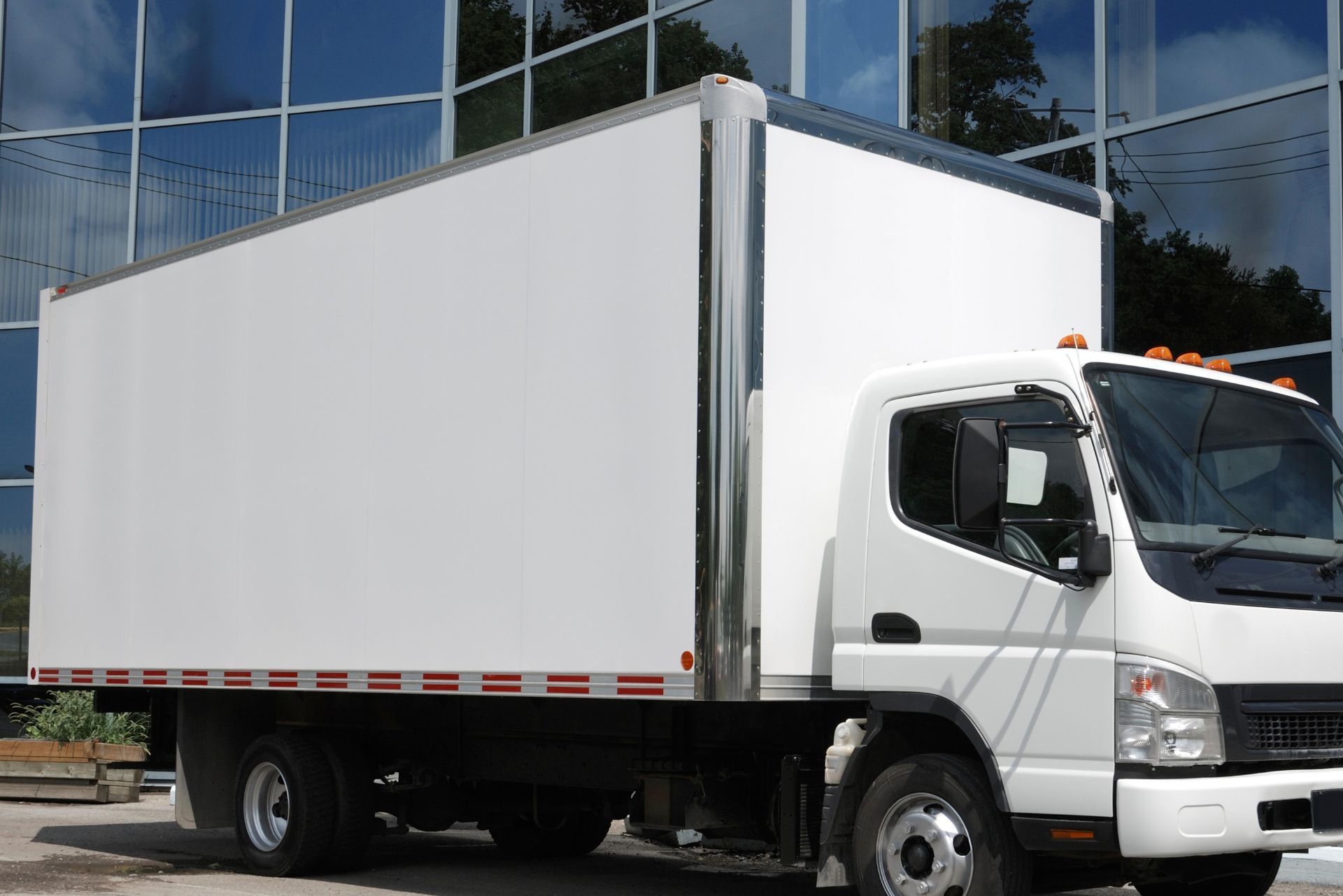Operating a box truck in Florida can be a lucrative business, but it also comes with its own set of risks. To protect your investment and ensure compliance with state laws, having the right insurance is essential. This article dives deep into Florida box truck insurance, covering everything from types of coverage to factors affecting insurance rates.
Understanding Box Truck Insurance
Box truck insurance is a specialized type of commercial vehicle insurance designed to cover box trucks, which are commonly used for transporting goods. Unlike personal vehicle insurance, commercial vehicle insurance takes into account the unique risks associated with operating a business vehicle. This type of insurance is tailored to meet the specific needs of businesses that rely on box trucks for their daily operations, offering coverage options that can be customized based on the nature of the business and the cargo being transported.
What is a Box Truck?
A box truck, often referred to as a cube truck, is a vehicle that has a separate cargo area enclosed by rigid walls. This design makes it ideal for transporting furniture, appliances, and other large items. Box trucks come in various sizes, typically ranging from 10 to 26 feet in length, and can be powered by gasoline or diesel engines. The versatility of box trucks allows them to be used in a variety of industries, including moving services, retail deliveries, and construction, making them an essential asset for many businesses. Additionally, some box trucks are equipped with features such as lift gates and loading ramps, further enhancing their utility for transporting heavy or bulky items.
Why is Insurance Necessary?
Insurance is not just a legal requirement; it also safeguards your business against unexpected events. Box trucks are often involved in accidents, theft, and damage, which can lead to significant financial losses. Having the right insurance coverage helps mitigate these risks, ensuring that your business can continue to operate smoothly even after an incident. Furthermore, box truck insurance can cover a range of liabilities, including bodily injury to others, property damage, and even cargo loss or damage, depending on the policy. This comprehensive coverage is crucial for businesses that transport valuable goods, as it protects against the financial repercussions of unforeseen circumstances, allowing owners to focus on growth and customer satisfaction without the constant worry of potential liabilities.

Types of Coverage Available
Florida box truck insurance typically includes several types of coverage to protect your vehicle, cargo, and liability. Understanding these options can help you choose the best policy for your needs.
Liability Coverage
Liability coverage is mandatory for all commercial vehicles in Florida. It protects you in case you are found responsible for causing an accident that results in injury or property damage to another party. In Florida, the minimum liability limits are:
- $10,000 for bodily injury per person
- $20,000 for total bodily injury per accident
- $10,000 for property damage
While these are the minimum requirements, many businesses opt for higher limits to ensure better protection. This is particularly important for companies that operate in high-traffic areas or transport valuable goods, as the costs associated with accidents can quickly exceed these minimums. Moreover, some clients may require proof of higher liability coverage before they agree to do business with you, making it a wise investment for your company’s reputation and financial stability.
Physical Damage Coverage
This type of coverage protects your box truck from physical damage due to accidents, theft, vandalism, or natural disasters. It is divided into two main components:
- Collision Coverage: Covers damages to your truck resulting from a collision with another vehicle or object.
- Comprehensive Coverage: Covers damages to your truck from non-collision incidents, such as theft, fire, or falling objects.
Having both collision and comprehensive coverage is crucial for box truck operators, as it ensures that you are financially protected against a wide range of potential incidents. For instance, if your truck is involved in a multi-vehicle accident, collision coverage will help you cover repair costs, while comprehensive coverage can save you from significant losses if your vehicle is stolen or damaged by a natural disaster like a hurricane, which is a common concern in Florida.
Cargo Insurance
Cargo insurance is essential for businesses that transport goods. It covers the loss or damage of the cargo being transported in your box truck. Depending on your business's needs, you can choose from different types of cargo insurance, including:
- General Cargo Insurance: Covers a wide range of goods but may have exclusions.
- Specific Cargo Insurance: Tailored for specific types of goods, such as electronics or perishables.
Additionally, many cargo insurance policies offer options for coverage during loading and unloading, which is a critical time when goods can be damaged. Understanding the specific risks associated with the types of cargo you transport can help you select the right policy. For example, if you frequently transport fragile items, investing in specific cargo insurance that covers breakage may be a prudent choice. Furthermore, some insurers provide coverage for delays or spoilage, which can be particularly beneficial for businesses dealing with perishable goods, ensuring that you are protected against various unforeseen circumstances that could impact your bottom line.
Factors Affecting Insurance Rates
Understanding the factors that influence insurance rates can help you find the best coverage at an affordable price. Several elements come into play when determining your box truck insurance premium.
Driving History
Your driving record is one of the most significant factors affecting your insurance rates. A clean driving history with no accidents or traffic violations can help lower your premium. Conversely, a history of accidents or claims can lead to higher rates. Insurers often look at not just the number of incidents but also the severity of those incidents. For instance, a single minor fender-bender may not impact your rates as much as a serious accident that resulted in significant damages or injuries. Furthermore, maintaining a good driving record over time can lead to additional discounts, as many insurers reward long-term safe drivers with lower premiums.
Truck Specifications
The specifications of your box truck, including its age, make, model, and value, also impact your insurance costs. Newer trucks with advanced safety features may qualify for discounts, while older models may be more expensive to insure due to higher repair costs. Additionally, the type of cargo you typically carry can also affect your insurance. For example, trucks used for transporting high-value goods may incur higher premiums, as they are considered a greater risk for theft or damage. It's also worth noting that certain makes and models are statistically more prone to accidents or theft, which can further influence your insurance rates.
Business Operations
The nature of your business operations can also influence your insurance rates. For example, businesses that transport hazardous materials may face higher premiums due to the increased risk. Additionally, the distance traveled and the frequency of operations can play a role in determining your rates. Insurers may consider whether your operations are local or long-haul, as long-haul drivers often face more risks associated with fatigue and road conditions. Moreover, the type of clientele you serve can also be a factor; businesses that work with high-risk industries may find themselves paying more for coverage. Understanding these nuances can help you tailor your insurance needs more effectively and potentially save on costs.
Choosing the Right Insurance Provider
Selecting the right insurance provider is crucial for ensuring that you receive adequate coverage and support. Here are some tips to help you make an informed decision.
Research and Compare Quotes
Start by researching various insurance providers that specialize in commercial vehicle insurance. Obtain quotes from multiple companies to compare coverage options and premiums. Look for providers that offer tailored policies for box trucks, as they will better understand your specific needs. Additionally, consider the financial stability of the insurance company. You can check their ratings through agencies like A.M. Best or Standard & Poor’s to ensure they have a solid track record of paying claims. A financially stable provider is more likely to be around when you need them the most.
Check Reviews and Ratings
Before making a decision, check online reviews and ratings for potential insurance providers. Customer feedback can provide valuable insights into the company's claims process, customer service, and overall satisfaction. Look for providers with a strong reputation for handling claims efficiently. You might also want to visit forums or social media groups related to commercial trucking, where you can find firsthand experiences from other drivers and business owners. Engaging with the community can give you a clearer picture of which companies are truly committed to their clients.
Ask About Discounts
Many insurance companies offer discounts for various reasons, such as bundling policies, having a clean driving record, or installing safety features in your box truck. Don’t hesitate to ask potential providers about available discounts that could help lower your premium. Furthermore, inquire about any loyalty programs or incentives for long-term customers. Some insurers may offer benefits for maintaining continuous coverage or for referring new clients. Understanding these options can significantly impact your overall costs and provide additional savings over time.
Legal Requirements in Florida
Florida has specific legal requirements for commercial vehicle insurance that box truck owners must adhere to. Understanding these regulations is vital for compliance and avoiding penalties.
Minimum Coverage Requirements
As previously mentioned, Florida mandates minimum liability coverage for all commercial vehicles. However, it is advisable to consider higher limits to protect your business adequately. Additionally, if you have employees driving your box truck, you may need to consider workers' compensation insurance. This coverage not only protects your employees in case of work-related injuries but also shields your business from potential lawsuits that could arise from such incidents. Given the unpredictable nature of road conditions and the potential for accidents, investing in comprehensive coverage can save you from significant financial strain in the long run.
Registration and Licensing
In Florida, all commercial vehicles must be registered with the Department of Highway Safety and Motor Vehicles (DHSMV). Ensure that your box truck is properly registered and that you have the necessary commercial driver's license (CDL) if required. Operating without proper registration or licensing can lead to fines and legal issues. Furthermore, it's essential to keep track of renewal dates for both registration and licensing to avoid lapses that could hinder your business operations. Regular maintenance checks and compliance with safety inspections are also crucial, as these not only ensure the safety of your vehicle but also demonstrate your commitment to adhering to state regulations. Failure to comply with these requirements can result in penalties that may affect your business's reputation and financial stability.

Common Insurance Claims for Box Trucks
Understanding common insurance claims can help box truck owners prepare for potential incidents and take preventive measures. Here are some of the most frequent claims associated with box trucks.
Accidents
Accidents are the most common reason for insurance claims. Whether it's a minor fender bender or a major collision, having the right coverage can help cover medical expenses, vehicle repairs, and liability costs. Maintaining a safe driving record and implementing safety training for drivers can help reduce the likelihood of accidents. Additionally, equipping box trucks with advanced safety features such as collision avoidance systems and rear-view cameras can further enhance safety on the road. Regularly reviewing and updating driver training programs to include the latest road safety regulations and best practices can also significantly lower the risk of accidents.
Theft and Vandalism
Theft and vandalism are significant concerns for box truck owners, especially those who park their vehicles overnight in unsecured locations. Cargo theft, in particular, can lead to substantial losses. Installing security systems and parking in well-lit, secure areas can help mitigate these risks. Furthermore, utilizing GPS tracking devices can aid in the recovery of stolen vehicles and cargo, providing an added layer of security. Owners should also consider keeping an inventory of valuable cargo and maintaining detailed records of all items loaded onto the truck, which can be invaluable in the event of a theft claim.
Weather-Related Damage
Florida's weather can be unpredictable, leading to potential damage from storms, floods, or hurricanes. Comprehensive coverage can help protect your box truck from weather-related incidents. Regular maintenance and inspections can also help ensure your vehicle is in good condition to withstand adverse weather. Additionally, investing in weather-resistant materials for the truck's exterior and cargo area can help minimize damage from heavy rain or hail. It's also wise for box truck owners to stay informed about local weather forecasts and to develop a contingency plan for securing their vehicles during severe weather events, such as relocating to safer areas or reinforcing cargo restraints to prevent shifting and damage.
Tips for Reducing Insurance Costs
While insurance is a necessary expense, there are several strategies that box truck owners can employ to reduce their insurance costs without sacrificing coverage.
Increase Deductibles
One effective way to lower your premium is by increasing your deductibles. A higher deductible means you'll pay more out-of-pocket in the event of a claim, but it can significantly reduce your monthly premiums. Be sure to choose a deductible amount that you can comfortably afford in case of an accident. Additionally, it’s wise to assess your financial situation and risk tolerance before making this decision. If you have a solid emergency fund, a higher deductible might be a sensible choice, as it can lead to substantial savings over time.
Maintain a Clean Driving Record
Encouraging safe driving practices among your drivers can lead to fewer accidents and claims, ultimately lowering your insurance costs. Implementing regular training sessions and monitoring driving behavior can help maintain a clean driving record. Moreover, consider adopting technology such as telematics devices that track driving habits like speed, braking, and acceleration. This data can not only help improve safety but may also qualify your business for additional discounts from insurers who reward safe driving practices.
Bundle Policies
Many insurance providers offer discounts for bundling multiple policies, such as commercial auto insurance and general liability insurance. Consider consolidating your insurance needs with one provider to take advantage of potential savings. This approach not only simplifies your insurance management but can also enhance your relationship with your insurer. Having all your policies with one company may make it easier to negotiate better terms or obtain additional discounts, especially if you demonstrate a long-term commitment to the provider.
Review Coverage Annually
Another important strategy is to review your coverage annually. As your business grows and changes, so do your insurance needs. Regularly assessing your policies can help you identify any unnecessary coverages or gaps in protection. For instance, if you’ve upgraded your fleet or changed your operational scope, your previous coverage may no longer be adequate or may include outdated provisions. Engaging with your insurance agent to discuss these changes can lead to tailored solutions that better fit your current situation, potentially saving you money while ensuring you remain adequately protected.
Take Advantage of Discounts
Many insurance companies offer various discounts that you might not be aware of. These can include discounts for being a member of certain industry associations, for having safety features installed in your trucks, or for completing driver safety courses. It's worthwhile to inquire about all available discounts when you’re shopping for insurance or renewing your policy. Additionally, some insurers provide loyalty discounts for long-term customers, so maintaining a relationship with one provider can be beneficial in the long run.
Conclusion
Florida box truck insurance is a vital component of operating a successful transportation business. Understanding the types of coverage available, the factors that influence insurance rates, and the legal requirements can help box truck owners make informed decisions. By choosing the right insurance provider and implementing strategies to reduce costs, businesses can protect their investments and ensure long-term success.
Whether you are a seasoned box truck owner or just starting, staying informed about insurance options and best practices is crucial. With the right coverage in place, you can focus on what matters most: growing your business and providing excellent service to your customers.

Contact Us


